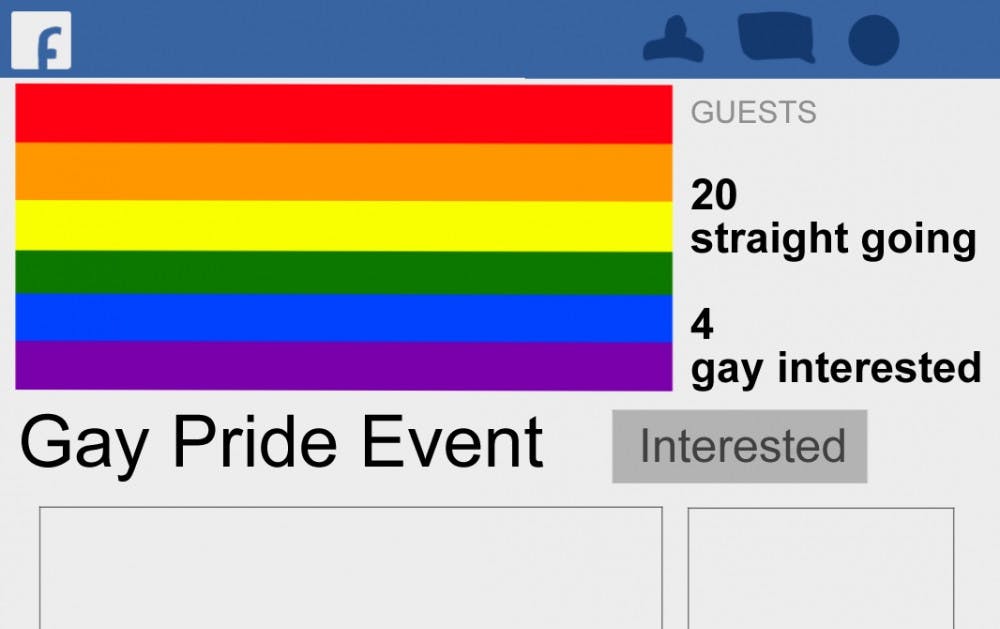Across the board, Pride is becoming more normalized amongst our generation. Chances are, you saw a lot of Instagram posts and stories about Pride this past weekend.
About 20,000 individuals attended the 2019 Phoenix Pride, making this year’s festival one of the largest ever. There were also multiple ASU groups that marched in the pride festival including the Rainbow Coalition, Confetti and the ASU Young Democrats.
Pride and similar LGBTQ+ events and spaces are becoming more mainstream, but this can be at the expense of the LGBTQ+ community. It's not necessarily an indicator that our issues are being taken into account or that our community is making progress.
Allies attending Pride need to recognize that the event is not meant for them to party, but is meant for members of the community who often lack spaces to comfortably express themselves.
Zoey Fragoso, a junior majoring in interdisciplinary studies who serves as the Spirit Squad Director for Confetti, said that it seems that there are equal parts members and non-members of the community who attend Pride.
It can be very degrading to members of the community attending Pride or going to other gay spaces to encounter people who are not part of the LGBTQ+ community (and no, being an ally does not count). In fact, the A does not stand for ally.
Mocking the LGBTQ+ community for expressing their identities at an event goes against the vision statement of Pride which reads “a unified community where diverse individuals are celebrated and able to thrive as their authentic selves.”
In my past experiences, I have encountered situations where people invite themselves to Pride, and, instead of asking questions or trying to learn about different LGBTQ+ subcultures, they proceeded to mock the event, its attendees and be homophobic toward me later on.
What did these “allies” learn from Pride? Evidently, nothing beyond getting a hall pass to the event — and they are also not the only people who do this.
“I feel like if they only see this glittery, happy Pride environment, it only perpetuates stereotypes about the gay best friend and the overly flamboyant man with feather boas and that doesn’t help out our community at all,” Fragoso said.
To clarify, there is nothing inherently wrong about people who do not identify as LGBTQ+ attending Pride and going to other LGBTQ+ themed events and spaces. However, there is an etiquette and a standard that non-members should follow in order to allow LGBTQ+ people to feel safe and comfortable in a space that is meant for them.
For starters, non-community members should educate themselves on the history of Pride and the activism that LGBTQ+ members are pushing for within their community. Pride came as a way to commemorate the Stonewall Riots, which pushed back against the mistreatment that New York police were enacting against LGBTQ+ people.
“There are also advocate groups that attend Pride that touch on the harsher realities of being a member of the LGBT community, and it’s not doing us any good to sort of ignore that they’re there.” Fragoso said.
When Pride is over, local groups such Equality Arizona, GLSEN, Aunt Rita’s Foundation and Planned Parenthood continue working tirelessly year-round to advocate for issues prevalent to the LGBTQ+ community. This includes repealing what has been referred to as “No Promo Homo,” a bill that forbade public officials from mentioning the existence of the LGBTQ+ community.
“It’s sort of a difficult thing to navigate where of course you’re welcome and we want a community to one day be fully accepted by society, but at the same time, I don’t want Pride to turn into this mini-Coachella where people just show up to take glittery selfies,” Fragoso said.
Everyone is welcome to attend Pride with invitation from a member of the community, as long as their intentions are genuine and transparent. It's important for attendees to keep in mind that they're there to support — not to fetishize and tokenize the culture as entertainment.
Reach the columnist at jguzma19@asu.edu or follow @JennyGuzmanAZ on Twitter.
Editor’s note: The opinions presented in this column are the author’s and do not imply any endorsement from The State Press or its editors.
Want to join the conversation? Send an email to opiniondesk.statepress@gmail.com. Keep letters under 500 words and be sure to include your university affiliation. Anonymity will not be granted.
Like The State Press on Facebook and follow @statepress on Twitter.




